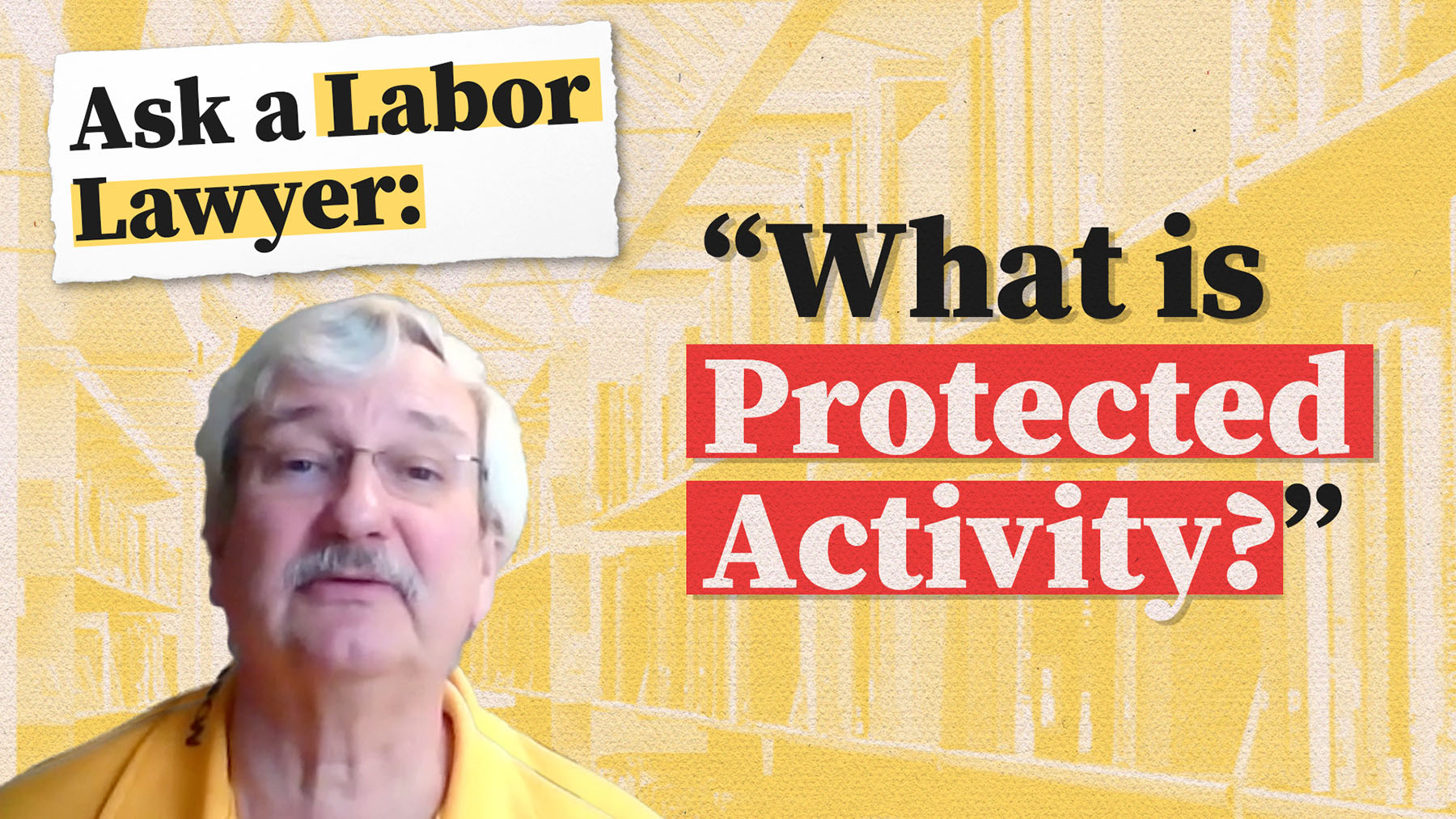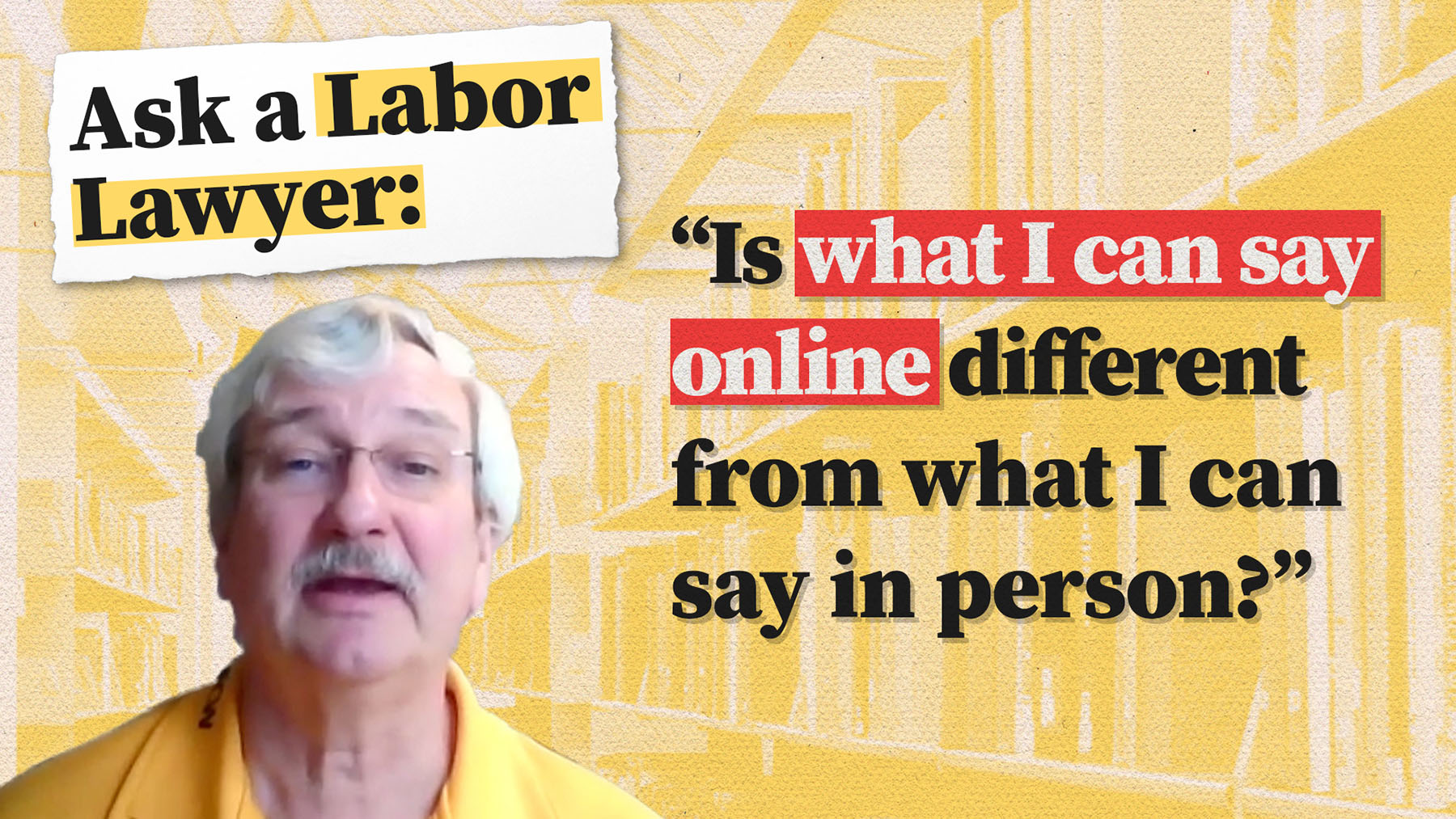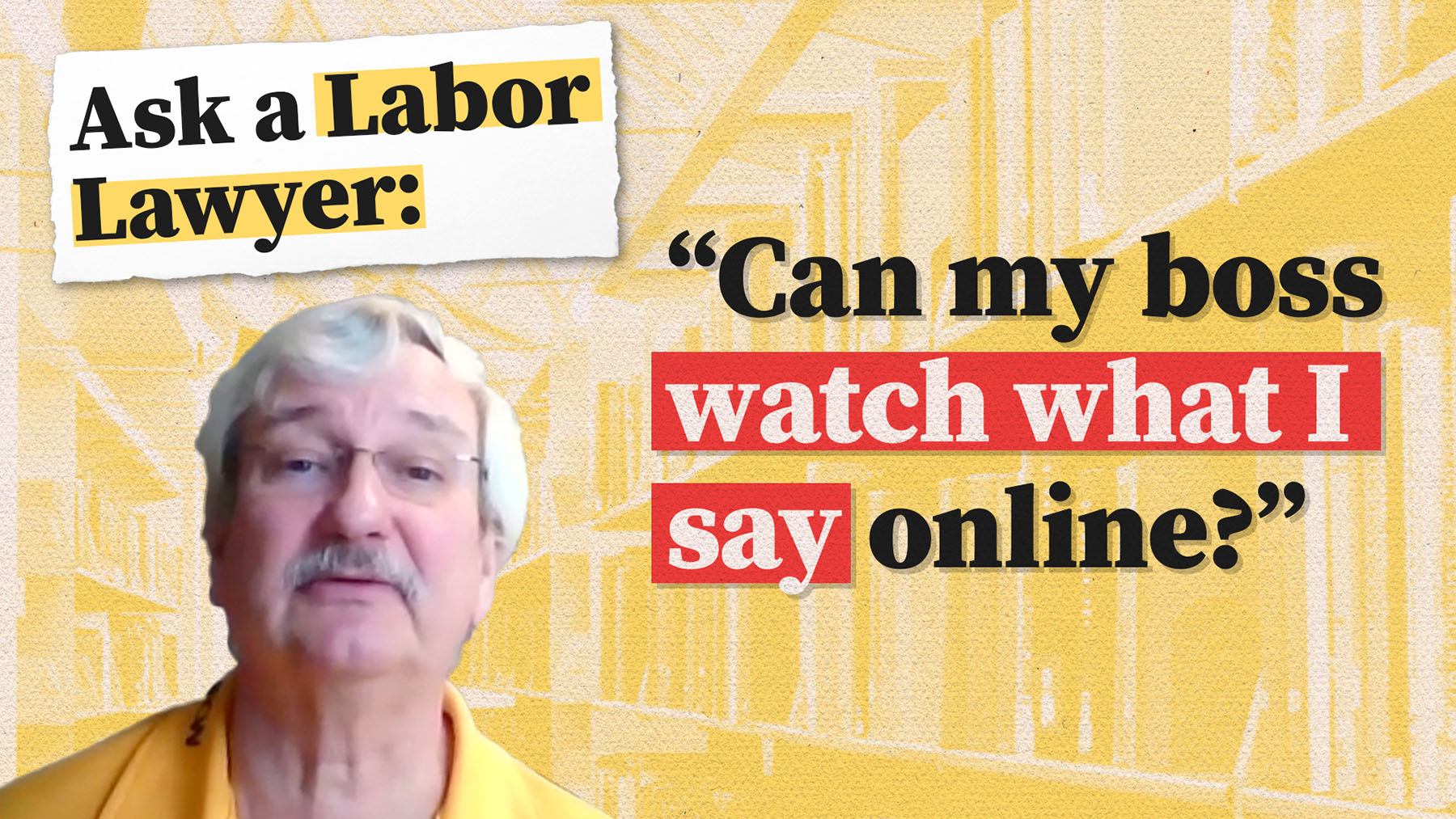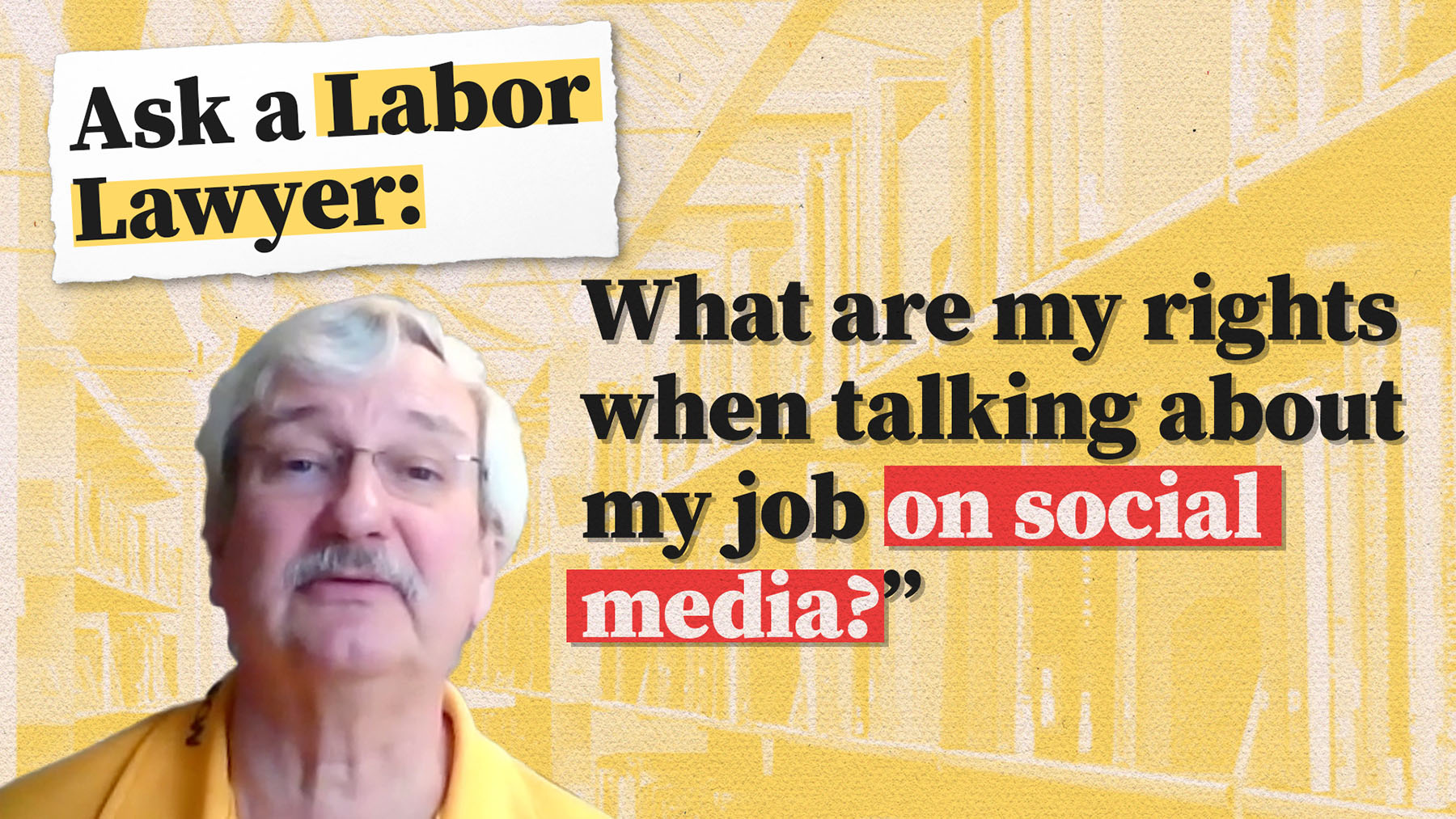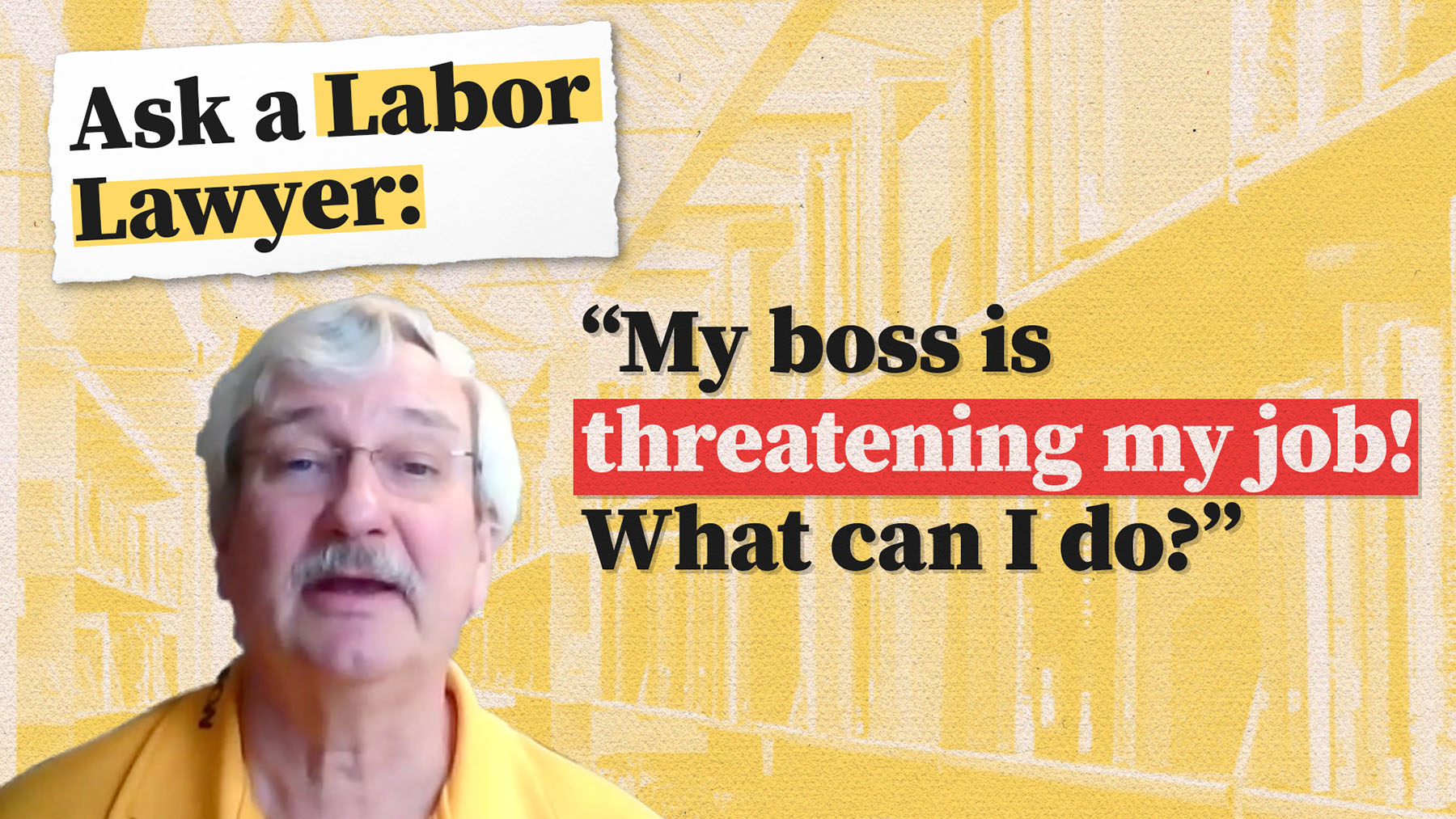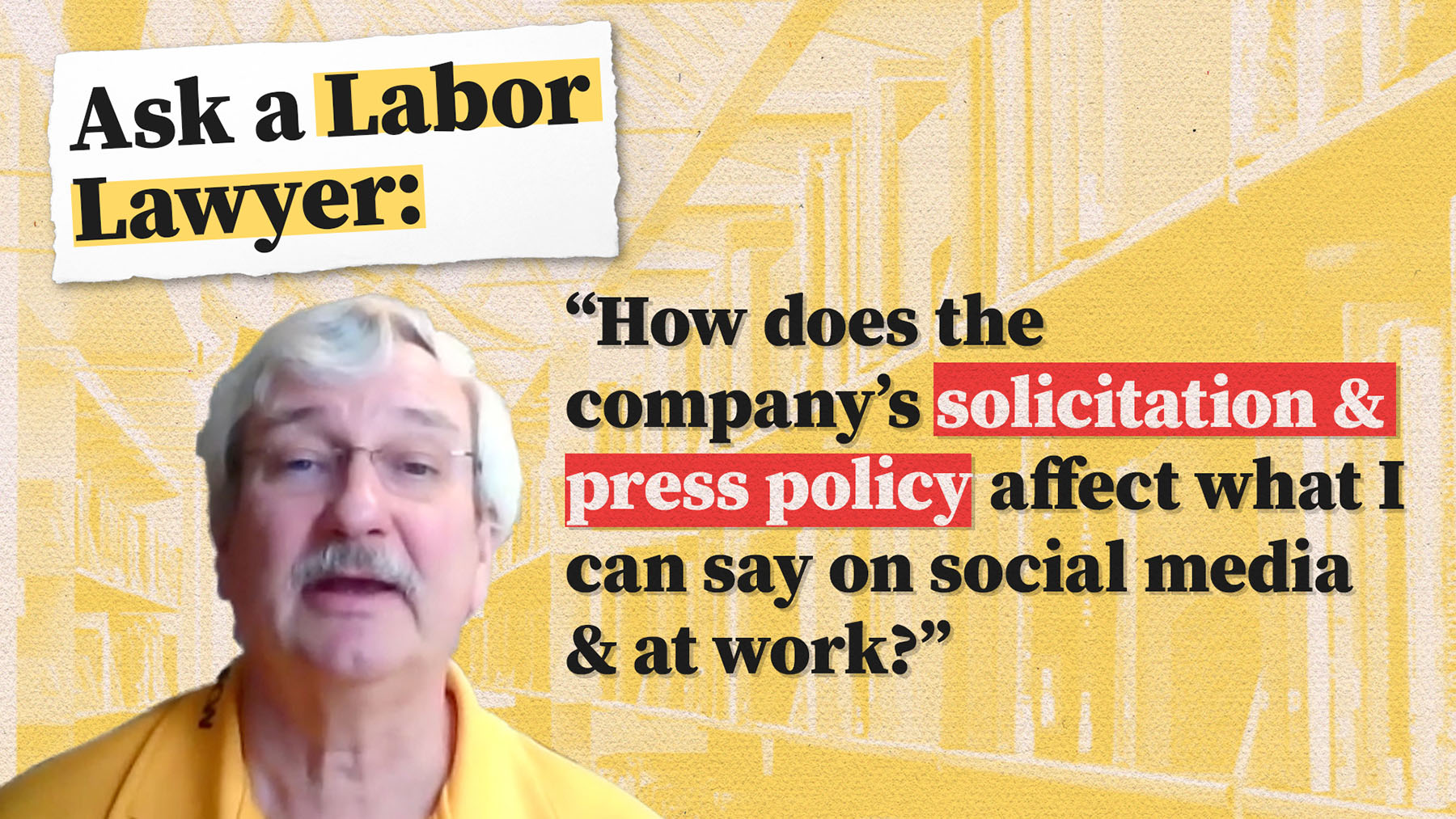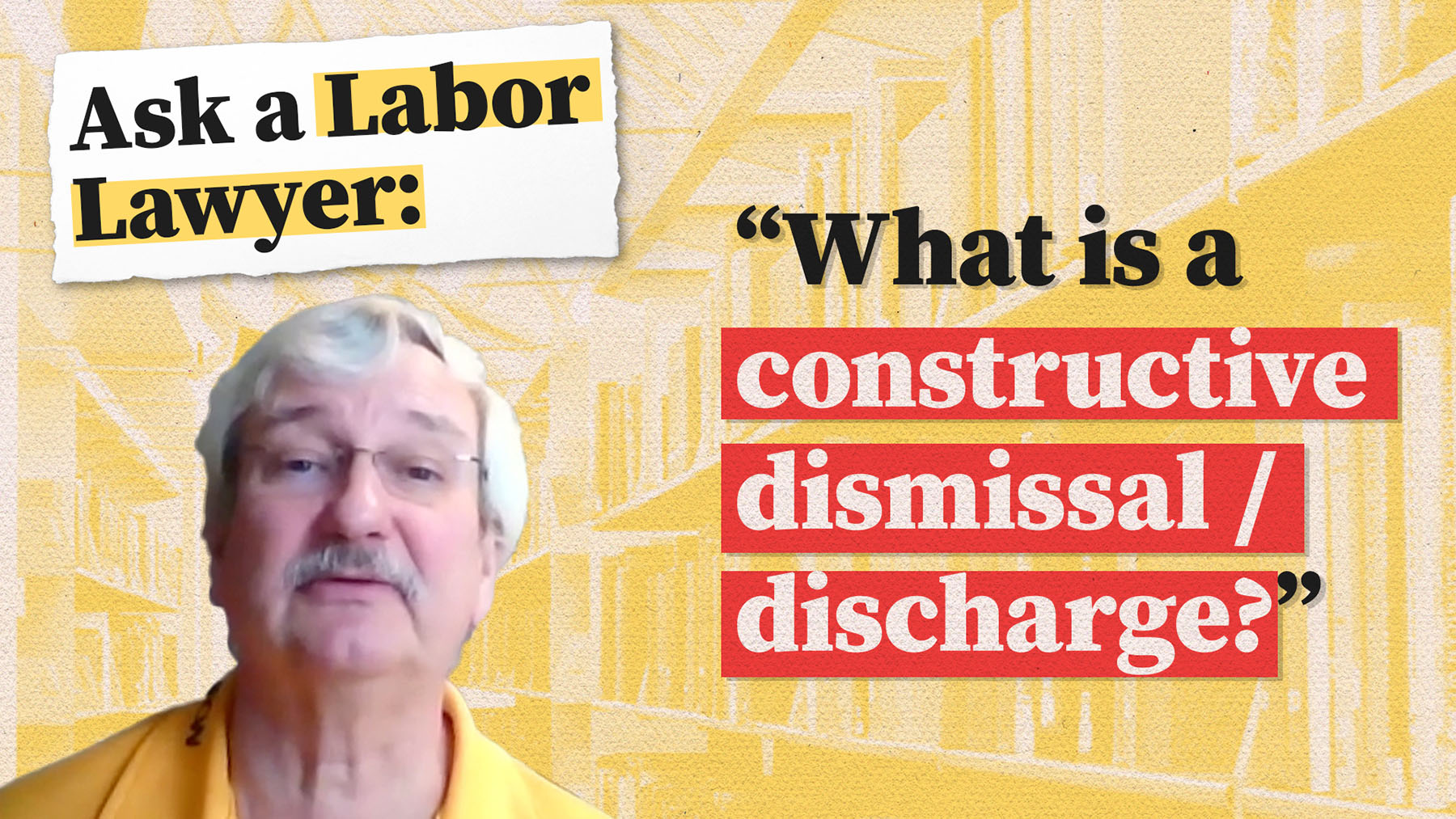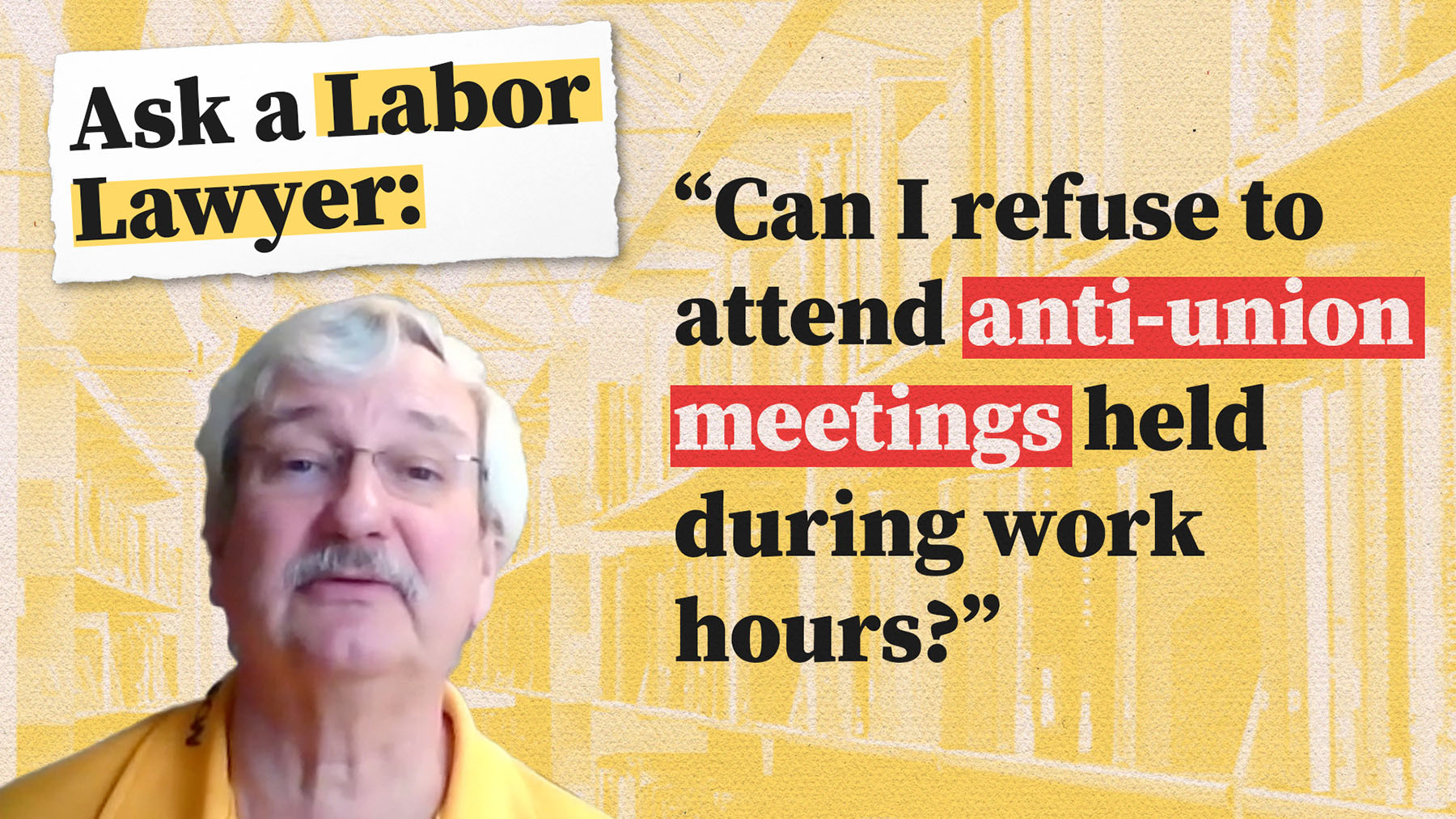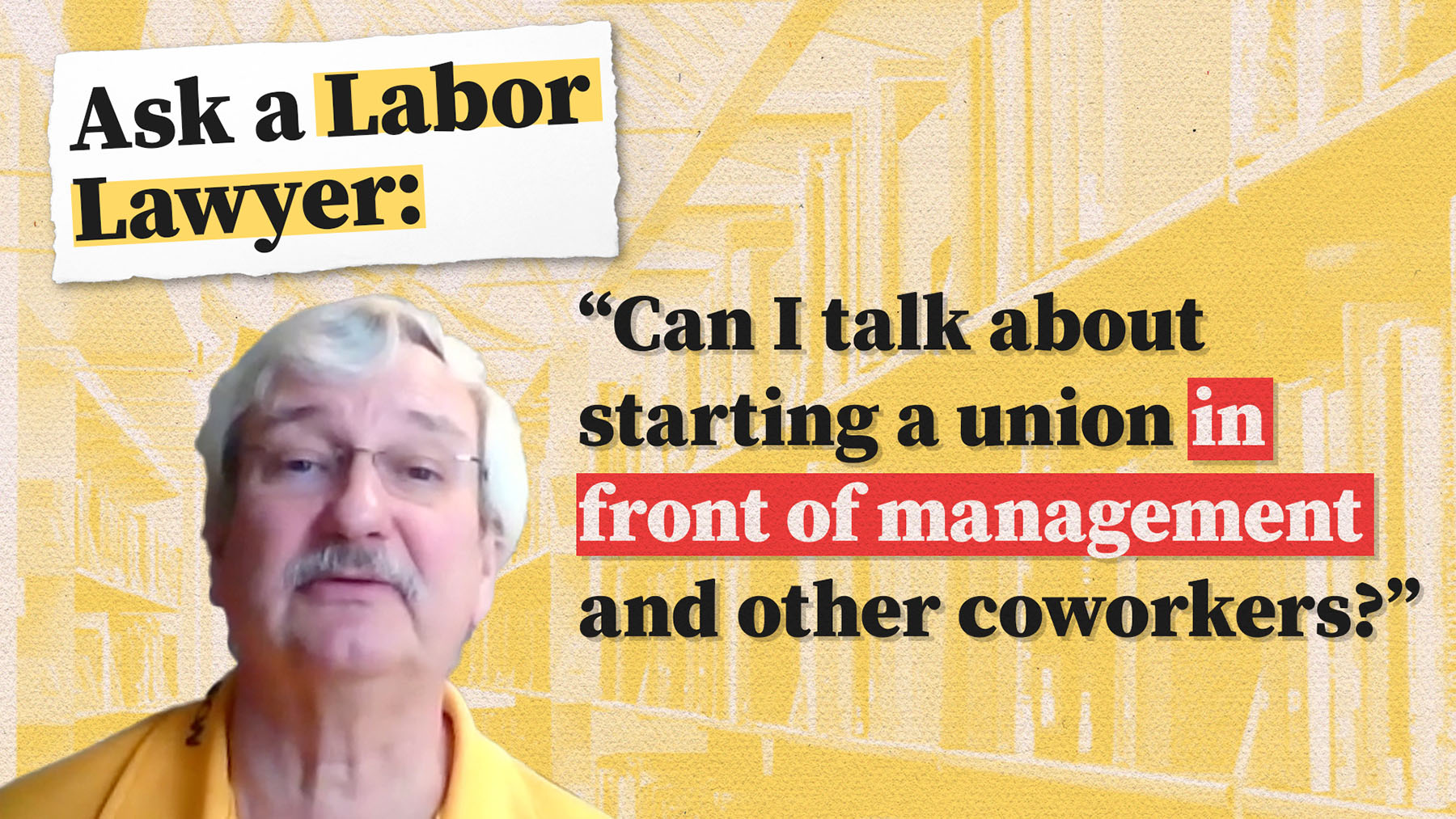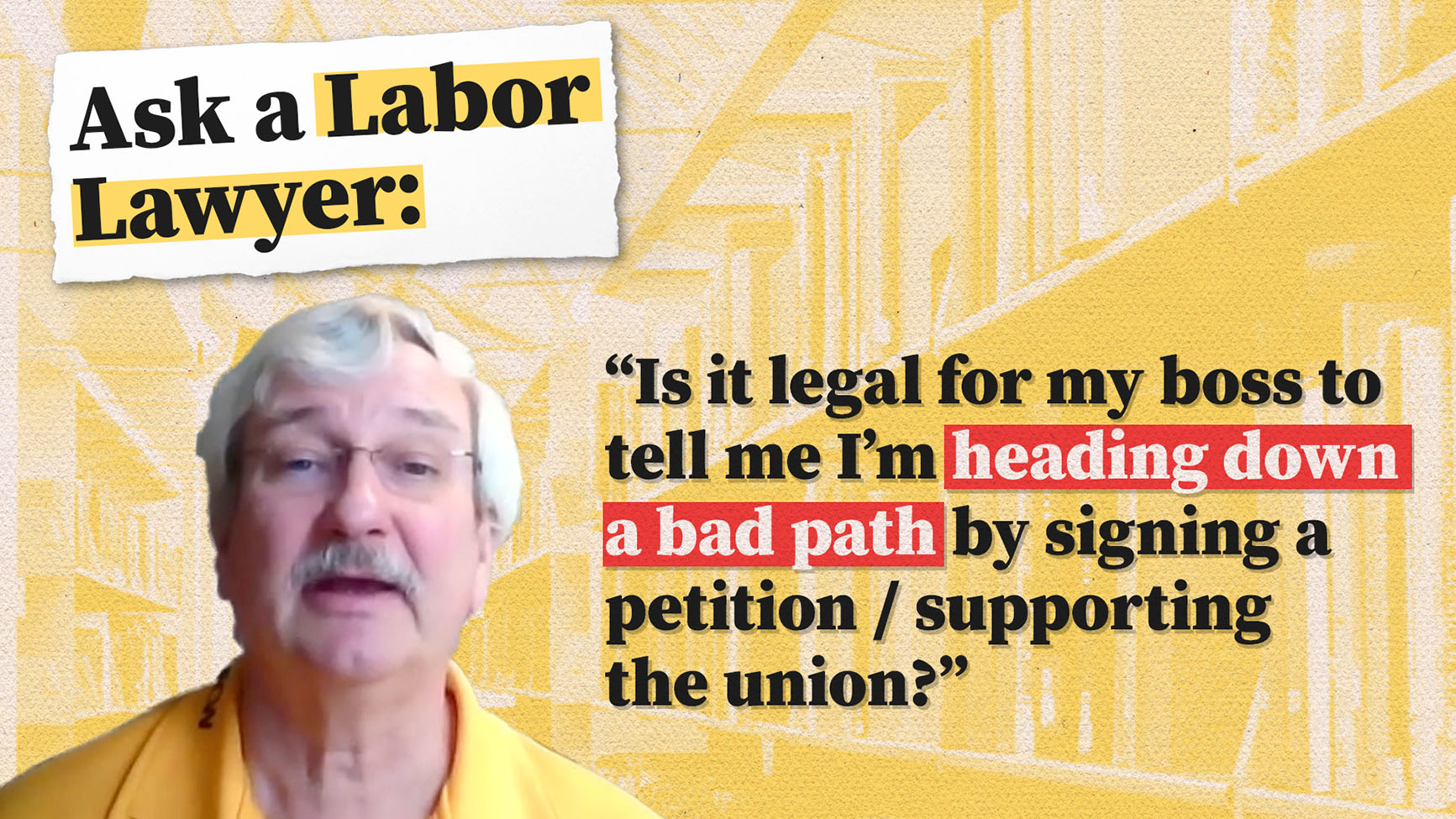U.S. labor laws are intended to make it easier and safer for you to build your union at work — so the more you know about your rights under these laws, the more successful your campaign can be. If you have questions about what your rights to organize look like, you deserve answers from an expert on these issues.
That’s why we sat down with George Wiszynski, a real live labor lawyer here at UFCW, to get into the nitty gritty about your rights to union organizing in the United States. In each section below, George answers some commonly asked questions workers have when starting their union.
Table of Contents
What is Protected Activity?
Is what I can say online different from what I can say in person?
Can my boss watch what I say online?
What are my rights when talking about my job on social media?
My boss is threatening my job! What can I do?
How does the company’s solicitation & press policy affect what I can say on social media & at work?
What is a constructive dismissal / discharge?
Can I refuse to attend anti-union meetings held during work hours?
Can I talk about forming a union in front of management and other coworkers?
Is it legal for my boss to tell me I’m heading down a bad path by signing a petition / supporting the union?
What is protected activity?
Answer: Protected activity is the term we use to refer to all the things that you have the right to do when it comes to you and your coworkers coming together to improve your working conditions. These are legal protections guaranteed by the National Labor Relations Act (NLRA) — and this law covers all of the actions we usually do when starting a union.
For more on what you can do that is considered protected activity under the NLRA, check out this page on the NLRB website!
Is what I can say online different from what I can say in person?
Answer: nope — just like with protected activity, whenever you’re talking about improving your workplace, it is protected speech under the NLRA. That’s still true on social media, just like it is if you’re at work or elsewhere.
Can my boss watch what I say online?
Answer: Absolutely not! As long as what you say online falls under the umbrella of protected speech, the NLRA prohibits supervisors and HR staff from surveilling what you say.
What are my rights when talking about my job on social media?
Your rights to talk about union activity apply wherever you are, online or in person.
Answer: If your manager tells you that you can’t post about union activity or discuss working conditions online, they’re not only unlawfully surveilling you as you discuss union activity online, they’re also lying to your face.
My boss is threatening my job! What can I do?
Answer: If your manager ever threatens to fire you or alter your hours because of union activity, they are breaking the law. It is a total violation of the NLRA to retaliate against workers for organizing, and if this ever happens to you, there’s a couple things you can do:
- File a legal action with the NLRB
- Come together with coworkers to tell management / HR that this is illegal & unacceptable behavior
However, if your boss is threatening you over your “work performance”, this is where you have to be more careful: it’s typical that management will pull from every last wrinkle in your work history and use it against you during your union campaign.
Don’t give bosses a single inch to retaliate against you during your campaign, and be sure to document your own work habits so that you have plenty of evidence if they try to retaliate against you or your coworkers.
How does the company’s solicitation & press policy affect what I can say on social media & at work?
Answer: Let’s start with how these things impact what you can say while on the job.
If your company has a solicitation policy that stops you from soliciting your coworkers for anything — whether it’s a fundraiser for your daughter’s soccer team or a new beauty product pyramid scheme — that policy will also stop you from soliciting a coworker to join your union while on the clock.
BUT: this doesn’t mean you can’t still talk about these things at work: your rights to protected speech still apply on the floor of your workplace. As long as you’re allowed to talk about anything else, you can talk about your union campaign too.
So if your company does have a solicitation policy, instead of directly soliciting people about joining the union during work hours, you can talk about your working conditions and how you and your coworkers are coming together to make them better.
As for how this impacts what you can say on social media: since you’re not on social media when you’re at work (OK, apart from a peek here or there), none of this applies to your activity online.
Your company may have social media policies that try to restrict what you can say about work on your social media accounts, but if you talk specifically about working conditions, it is unlawful for your company to stop you from doing so.
Just remember — if you’re going to complain, make it about your working conditions, and not things like how expensive or lousy your company’s products are!
What is a constructive dismissal / discharge?
Answer: This concept may sound jargon-y but it’s really a simple idea: when managers get wind of your union campaign, instead of firing you outright for union activity (which is illegal), they may try to make your job so miserable and hostile that you decide to quit on your own (this is also illegal, but more difficult to report and prove). When this happens, it is called a constructive dismissal / discharge.
During your union campaign, you may see that you or someone else in your organizing committee is facing things like cut hours; additional, painstaking work tasks; or excessive scrutiny from management. If this happens and that person is forced to quit, the NLRB would view this as an unlawful termination, rather than someone choosing to quit.
That makes a huge difference, and it should make your company think twice before trying to pull something like this on you. So when you think your company is retaliating against the folks in your union campaign, be sure to document things like changes in policies, scheduling, work tasks, or management behavior.
Can I refuse to attend anti-union meetings held during work hours?
Answer: When your company learns that a union drive is happening at your workplace, they’ll probably start holding captive audience meetings where they make all your coworkers sit down and listen to HR presentations on why a union isn’t necessary at your workplace (in other words, gaslighting you).
If management forces you all to sit down and observe one of these meetings during work hours, it’s probably best to go along with it: refusing to do so may leave you subject for discipline over insubordination.
The truth is that these captive audience meetings can actually be a great way to show your coworkers just how lazy the company’s talking points against the union actually are.
Can I talk about forming a union in front of management and other coworkers?
Answer: The answer to this question is another one that is less about legal technicalities and more about strategy.
Sure, you always have the right to talk about unionizing in front of management. But if you’re doing that, it better be because management already knows since you’ve filed for a union election and have confirmed support from at least 75% of your coworkers.
We say this because in any union campaign, it’s always best to have organizing convos with as many of your coworkers as possible before management even knows what you’re doing. The further ahead you are, the less time they have to start their disinformation campaign to scare people away from your campaign.
Is it legal for my boss to tell me I’m heading down a bad path by signing a petition / supporting the union?
Answer: They should really know better at this point! No, they cannot: any comment or threat with regard to your union activity is a total violation of the NLRA.
Unionize Your Workplace
Are you and your coworkers ready to negotiate for bigger raises, stronger benefits, and better lives? If so, the steps to start a union with UFCW are simple.

